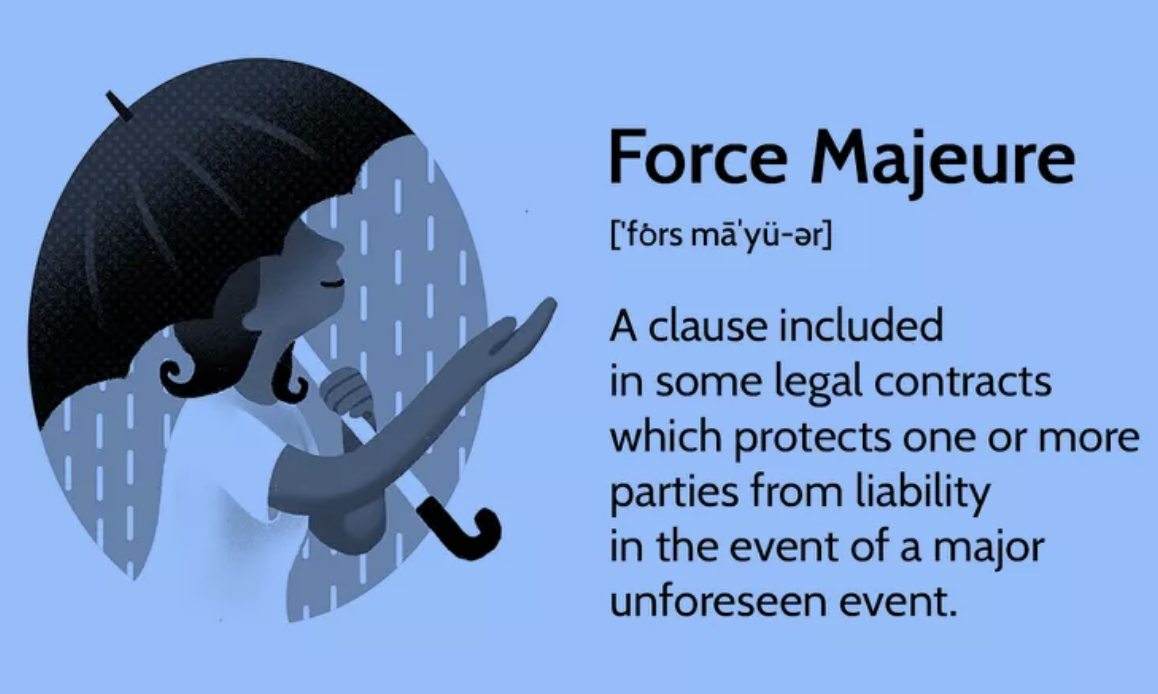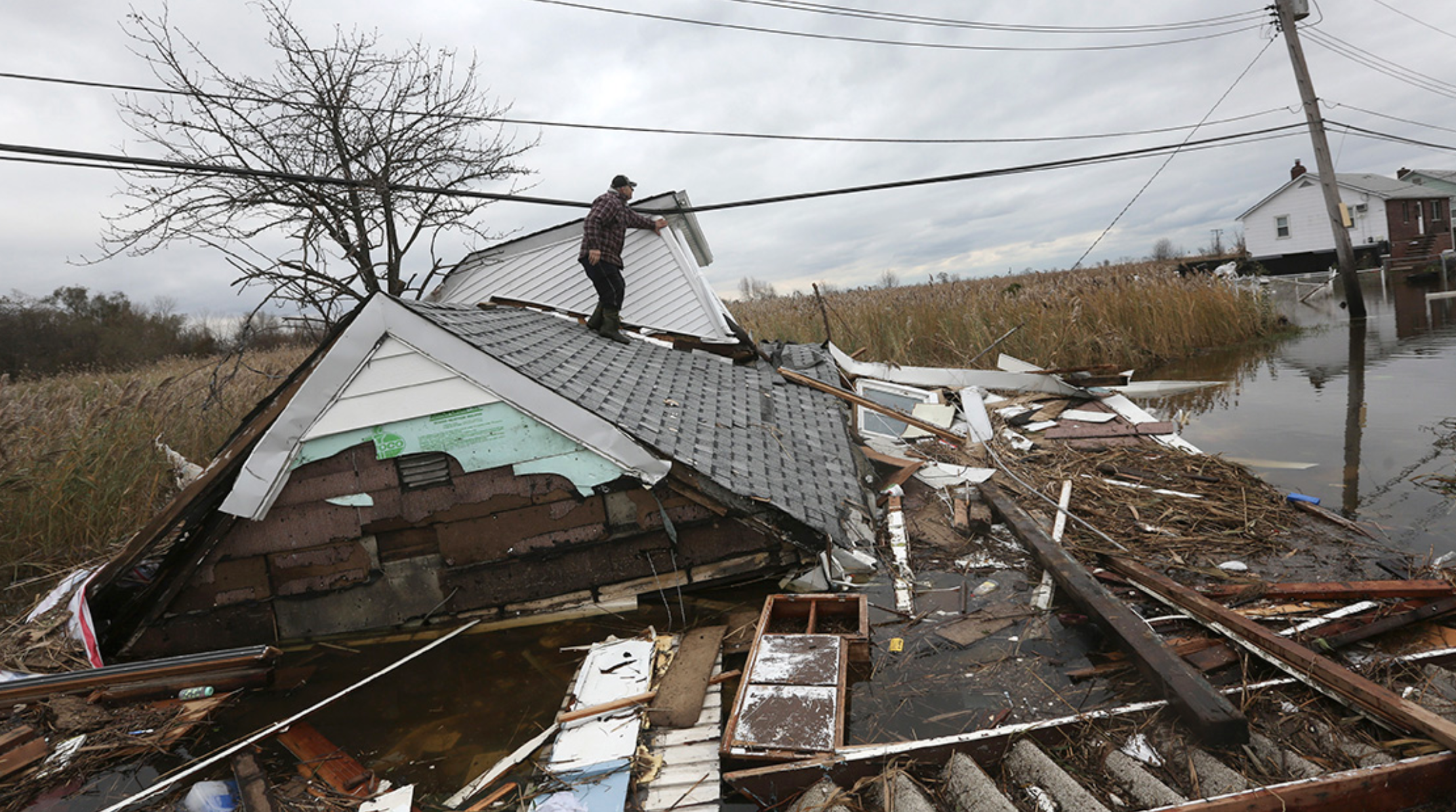Business Contracts and an Act of God
Jan 29th, 2024
The term “Act of God” in contracts refers to extraordinary events, such as natural disasters or pandemics. These are outside human control and can hinder contractual obligations. Often described in a “force majeure” clause, these provisions are vital in determining the liability and course of action when such unforeseeable events occur.
When an “Act of God” interrupts the execution of a contract, parties must refer to the specific terms outlined in their agreement. These terms define the scope and extent to which such events excuse performance, and they may vary significantly across jurisdictions and individual contracts. Businesses need to negotiate these clauses with precision, as they provide a necessary buffer against the harsh consequences of unforeseen disasters.
Understanding and strategically drafting “Act of God” clauses is crucial for modern contract management. These clauses not only mitigate risk but also guide businesses during times of sudden and extreme change. This guide outlines strategies for mitigating risks associated with “Acts of God” in business contracts.
Key Takeaways
- To effectively minimize losses, businesses must define “Acts of God” clearly in contracts to cover a range of events, including pandemics and natural disasters, for legal protection.
- Perform risk assessments and develop management strategies for potential “Acts of God” to maintain business continuity.
- Review and optimize insurance coverage to ensure it aligns with force majeure clauses and protects against “Acts of God.”
😉 Bonus: Check out our 10 Contract Lifecycle Management KPIs Every Business Needs.
Mitigating risk associated with “Acts of God” in business contracts can be complex, but here are seven steps to help you manage them:
-
Contractual Definitions and Updates

Image Source: https://www.investopedia.com/terms/f/forcemajeure.asp
Make sure your contracts include comprehensive definitions of “Acts of God,” covering events like pandemics, earthquakes, and extreme weather conditions, or revise them as necessary. During the COVID-19 pandemic, the absence of specific language in force majeure clauses left many businesses unprotected when contracts failed to identify pandemics as “Acts of God.”
It’s crucial to articulate the scope of such events clearly and precisely. Collaborate with legal experts to ensure your clauses are enforceable and align with your business operations. Periodic reviews are essential, as new forms of natural and man-made events emerge that could impact contractual obligations.
-
Risk Assessment and Management
Conduct a detailed risk assessment for potential “Acts of God” that could disrupt your business. This should involve analyzing:
- Historical data
- Geographic susceptibility
- Industry-specific threats
For instance, a company operating in a seismic zone should prepare for earthquakes. Use statistical models to estimate the likelihood and impact of such events. Based on the assessment, develop a risk management strategy that includes preventative measures, emergency responses, and recovery plans. This proactive approach not only prepares your business for potential disruptions but also demonstrates due diligence to insurers and stakeholders.
-
Insurance Coverage Optimization

Image Source: https://www.planning.org/planning/2022/fall/how-hurricane-sandy-changed-the-way-we-respond-to-disasters/
Ensure your business has suitable insurance coverage for “Acts of God.” Policies should cover a range of natural disasters and other events beyond human control. For example, after weather events like Hurricane Sandy and others in the early 2000s, companies with comprehensive disaster insurance were able to recoup their losses more effectively.
Work with insurance brokers to understand coverage limits, exclusions, and the claims process. It’s also advisable to periodically review your coverage to adjust for new risks and ensure that insurance terms align with your force majeure clauses.
-
Communication Protocols
Establish clear communication protocols for reporting and managing “Acts of God.” Develop comprehensive internal and external communication strategies. These should detail how and when to report such events, who to communicate with, and the type of information required. During unforeseen events, companies with effective communication are able to coordinate with their partners and stakeholders swiftly. This minimizes confusion and enables a more organized response to the crisis.
-
Contingency Planning
Developing contingency plans is key for business resilience against “Acts of God.” This involves identifying critical business functions and creating backup plans. For example, businesses in areas prone to hurricanes or earthquakes should have strategies to maintain operations during and after such events.
Options might include establishing secondary operational sites or remote work capabilities. Coastal businesses may consider fortifying infrastructure and establishing evacuation procedures. Additionally, consider supply chain disruptions, ensuring alternative sourcing for key materials and products. Regular drills and updates to these plans ensure they remain effective and relevant.
-
Legal Consultation for Enforceable Clauses
Regular consultations with legal experts are crucial for drafting and maintaining enforceable “Acts of God” clauses in contracts. Legal professionals can provide insights into recent case law and statutory changes that may impact the interpretation of these clauses.
For example, in areas prone to wildfires, like parts of Australia or the western United States, legal guidance can ensure that contracts adequately address potential disruptions from such events. Lawyers can also help draft fair and balanced clauses, protecting the interests of all parties involved. Ongoing legal review helps businesses stay ahead of legal trends and ensure contracts are aligned with current laws and practices.
-
Adaptation to Evolving Risks
Staying up to date on evolving risks that could be classified as “Acts of God” is important. With the advancement of technology, events such as cyber-attacks or significant AI disruptions may now fall under this category. Regular updates to your contracts to include such modern risks will ensure that your business remains protected against a broader range of potential “Acts of God.”
Comprehensive Contract Risk Management with Contract Logix
Contract Logix’s contract management platform gives businesses the tools to effectively identify and mitigate contract risk. With features for AI-assisted Data Extraction, custom workflows, and automated reminders, Contract Logix gives your teams powerful insights and a safety net for contract risks. In addition, the software’s clause and template libraries can help ensure you always have the right legal language and formats in your contracts.
Request a demo of Contract Logix today.
Looking for more articles about Contract Management? Check out our previous article “Contract Administration: The Definitive Guide”.
Navigate CLM Success With Contract Logix
Download our Data Extraction Product Brief to learn how you can begin to navigate CLM success by automating the hard work using artificial intelligence with one of the best Contract Management Software’s on the market today


